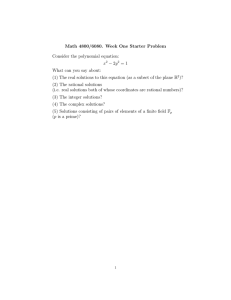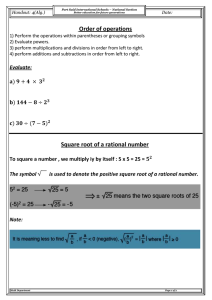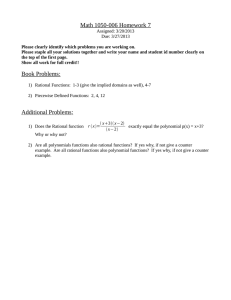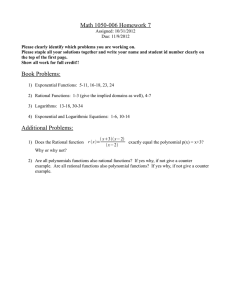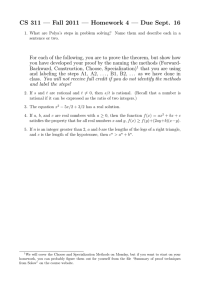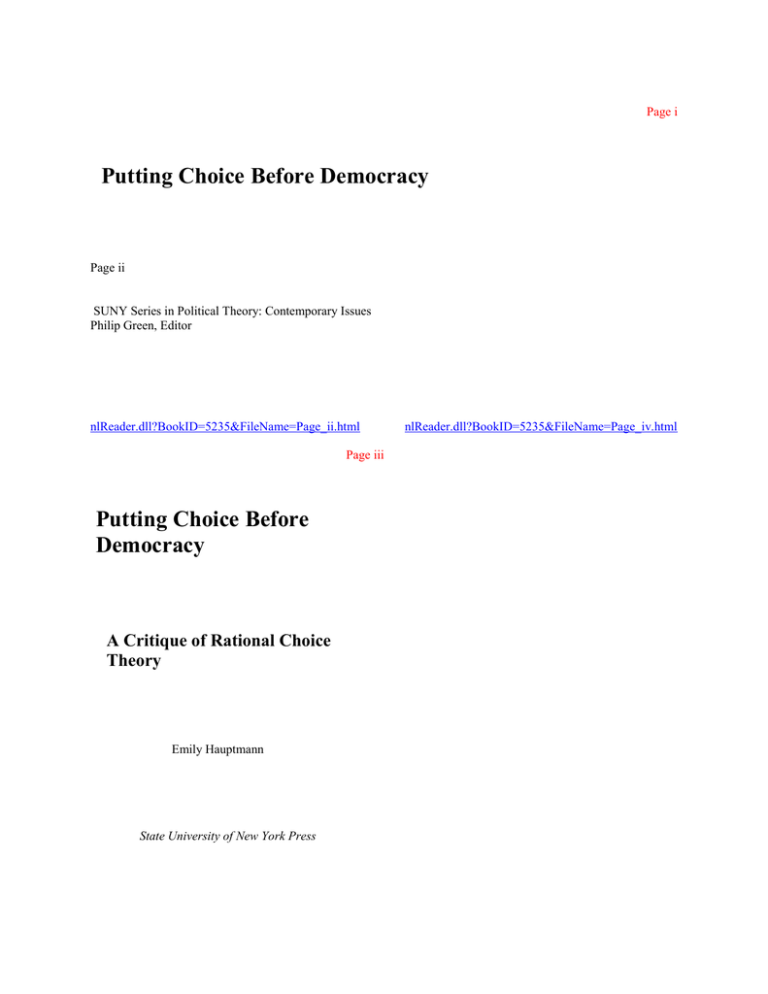
Page i
Putting Choice Before Democracy
Page ii
SUNY Series in Political Theory: Contemporary Issues
Philip Green, Editor
nlReader.dll?BookID=5235&FileName=Page_ii.html
Page iii
Putting Choice Before
Democracy
A Critique of Rational Choice
Theory
Emily Hauptmann
State University of New York Press
nlReader.dll?BookID=5235&FileName=Page_iv.html
Page iv
Published by
State University of New York Press, Albany
© 1996 State University of New York
All rights reserved
Printed in the United States of America
No part of this book may be used or reproduced in any manner whatsoever with- out written permission. No part of
this book may be stored in a retrieval system or transmitted in any form or by any means including electronic,
electrostatic, magnetic tape, mechanical, photocopying, recording, or otherwise without the prior permission in
writing of the publisher.
For information, address State University of New York Press
State University Plaza, Albany, N.Y., 12246
Excert from "A Worker Reads History" in SELECTED POEMS by Bertolt Brecht, copyright 1947 by Bertolt
Brecht and H. R. Hays and renewed 1975 by Stefan S. Brecht and H. R. Hays, reprinted by permission of Harcourt
Brace and Company.
Production by Diane Ganeles
Marketing by Nancy Farrell
Library of Congress Cataloging-in-Publication Data
Hauptmann, Emily
Putting choice before democracy : a critique of rational choice
theory / Emily Hauptmann.
p. cm. — (SUNY series in political theory. Contemporary
issues)
Includes bibliographical references and index.
ISBN 0–7914–3028–6 (PB : acid-free). — ISBN 0–7914–3027–8 (CH :
acid-free)
1. Democracy. 2. Rational choice theory. I. Title. II. Series.
JC423.H377 1996
321.8'01—dc2095–37347
CIP
10 9 8 7 6 5 4 3 2 1
Page v
For my mother
Page vii
Contents
Acknowledgments
ix
Introduction
1
Chapter 1
The Political Frustrations of the Rational Chooser: The Structure of Elections, the Two-Party System and the
Politics of Interest Groups
7
Chapter 2
The False Paradox of Choice in Rational Choice Theory
37
Chapter 3
Democracy without the Rational Chooser: The Lottery System in Ancient Athens
59
Chapter 4
Against an Economic Explanation of Politics
73
Conclusion
91
Notes
95
Bibliography
125
Index
135
Page ix
Acknowledgments
There are a number of people whose encouragement, advice, and criticism helped me think about, improve, and
finally complete this book. First, I should like to thank my dissertation committee, Hanna Pitkin, Norman Jacobson,
and John Harsanyi, for their many years of support. I especially thank Hanna Pitkin for her close readings of all of
my many drafts and for encouraging me to rethink and refine many sections I would have liked to consider finished.
I also thank John Harsanyi for prodding me to give fuller and fairer accounts of rational choice theory. And Ernst
Haas, who was the first to urge me to acquaint myself with the rational choice literature, encouraged me to believe I
could put together a critique others might read and take seriously.
Many people also read and commented upon parts of this project at various stages. I owe a great deal to Deborah
Achtenberg, Ron Brecke, Elizabeth Collins, Bill Eubank, Richard Flathman, Jill Frank, Philip Green, Andy Gould,
Joann Goven, Jack Gunnell, Phillip Harding, Jim Johnson, Michael Rogin, Ian Shapiro, Laura Stoker, and Brian
Weiner in this regard. The Josephine de Karman Foundation and the sponsors of the Jefferson Lectures Fellowship
supported my work in its early stages; Clay Morgan at SUNY Press helped me make a book of it.
A special note of thanks is owed to several others: to my father, who taught me to love the academic life; to
Jonathan Brewer, for his friendship and faith; and to Dan Aalbers, for making me think harder.
Page 1
Introduction
Rational choice theory has become one of the primary currents in American political science in the last twenty
years. Because of its parsimonious theoretical structure, it is one of the few approaches to the study of politics that
has generated specific, commonly recognized areas for further research. 1 Indeed, the influence or rational choice
theory has been felt by all social scientists so that, as Jon Elster has put it, one may now encounter "… arguments
purporting to show that murder, addiction, marriage, churchgoing, joining a revolutionary movement or writing
Paradise Lost are all to be understood in terms of rational choice under constraints."2 For many of its adherents, the
theory's ability to offer an explanation of such diverse phenomena confirms its power.3 Though the influence of
rational choice theory has spread throughout the social sciences, it has been felt perhaps most strongly in political
science, particularly in the study of American politics. In this area, older understandings of the behavior of political
parties, elected officials, interest groups and voters have all been seriously challenged by the work of rational choice
theorists.4 As a consequence, teachers of political science have begun to reflect upon how rational choice theory
ought to be taught to undergraduates and to what degree doing so complements or undermines teaching students
about civic responsibility.5
But what is rational choice theory? Although often spoken of as a unified approach, rational choice theory is a
broad category whose adherents range from free market conservatives to Marxists.6 To complicate matters further,
one often hears this body of work called "social choice" or "public choice" as well; indeed, the way these
Page 2
terms are often used suggests they are interchangeable. The differences between them, however, provide useful
points of reference for explaining why various theorists emphasize the things they do.
Rational, social, and public choice theory, though closely related and sometimes indistinguishable, differ in
emphasis if not in method. Social choice theory is concerned primarily with how individuals' preferences or choices
can be translated into a coherent social policy or outcome. In its early and more general statement, in Kenneth
Arrow's Social Choice and Individual Values, 7 social choice theory extends welfare economics' analysis of how
governments make economic policy to how governments take their citizens' preferences into account in making
policy of all kinds. When social choice theory is applied explicitly to politics (as it is in William Riker's Liberalism
Against Populism) it focuses on various methods of structuring elections or counting votes.8
Public choice theory is virtually indistinguishable from social choice theory with respect to the political phenomena
each examines. The difference between the theories comes from the different economic perspectives informing
them; public choice theory relies upon free market economics, social choice theory upon welfare economics.9 Both
apply economic principles to political science, as indeed does rational choice theory, but each strain of theory is
distinguished by the specific economic principles it deems most relevant to political choice.
Rational and social choice theorists focus on the paradoxes and pitfalls that accompany individuals' political
choices, advocating a redefinition of democracy without any corresponding reform in current political practices and
institutions. These theorists emphasize how, once one attends to the logical problems that accompany political
choices, ideas like consensus, the common good or acting in the public interest cannot help one defend democracy
coherently. Public choice theorists are even more pointedly critical of democratic theory, arguing that most
democratic norms concerning equality are not only difficult to realize but not worth pursuing. On the strength of this
view, public choice theorists recommend radical changes not only in the way we understand democracy, but also in
many of its institutional features.
While to distinguish between social and public choice theory one need only point to their different economic
parents, characterizing
Page 3
rational choice theory is more difficult. Rational choice theory, as a category, probably encompasses more theorists
more readily than do either social or public choice theory, but for that very reason the category is less informative as
a label. Rational choice theory is a general theory that seeks to explain a great deal of human behavior as the product
of individuals' instrumentally rational choices. 10 Rational choice theorists are a highly diverse group which
includes Marxists, political theorists and philosophers, game theorists and formal modelers, and political scientists
who use rational choice theory in a wide range of empirical studies.11 If all of these people can call themselves
rational choice theorists, then rational choice theory must not be the kind of theory that commits its adherents to
study specific types of political phenomena from any sort of shared political perspective.
Four of the works I examine, Kenneth Arrow's Social Choice and Individual Values, James Buchanan and Gordon
Tullock's The Calculus of Consent, Anthony Downs's An Economic Theory of Democracy, and Mancur Olson's The
Logic of Collective Action are widely regarded as among the best early statements of various aspects of rational
choice theory. The fifth, William Riker's Liberalism Against Populism, published in 1982, is an exception. I include
it because while Arrow, on whose work Riker draws, hesitates to apply social choice theory to any specific political
practices or institutions, Riker demonstrates both how it can be used to analyze a variety of voting procedures and
recast democratic theory. Although these theorists have much in common, noting their differences is instructive. In
some cases, they explicitly articulate differences; in others, their differences arise out of shifts of emphasis rather
than open disagreement.
Anthony Downs and Mancur Olson, whom I regard as rational choice theorists, share neither Arrow and Riker's
interest in how elections are structured, nor Buchanan's conviction that current political institutions ought to be
reformed in favor of free market mechanisms. Nor do they share much with each other, except an interest in the
logic of individual citizens' choices about whether to participate in politics. Although I will make much of these
differences, it ought also to be emphasized that each of these theorists is aware of and interested in the work of the
others.12 They speak, in many ways, a common language.
nlReader.dll?BookID=5235&FileName=Page_3.html
Page 4
nlReader.dll?BookID=5235&FileName=Page_5.html
Powerful as its challenges to other ways of doing
political science have been, rational choice theory has
had its share of critics. Indeed, those who participate
in its ''research program" often offer the most
perceptive critiques, given that their work involves
refining and elaborating areas in which the theory
reaches inconsistent or unsatisfactory conclusions. 13
Many external critics of rational choice theory may be
found as well.14 These range from those who find the
explicitly economic basis of the theory poorly suited
to its political ambitions to those who fault rational
choice theory for privileging the liberal over the
participatory in their theory of democracy. Many of
these critics take on rational choice theory in the
course of taking on something much larger, be it
liberalism or utilitarianism.
What I intend to offer here is a specific critique of
rational choice theorists' attempt to redefine what we
mean by democracy. How rational choice theorists
conceive of choice—what it means to choose and the
value of being able to do so—turns out to be central to
understanding how they redefine democracy and why
their definition fails. Important as it is to understand
how rational choice theorists conceive of rationality
and self-interest, focusing on their conception of
choice takes us to the core of the puzzle of rational
choice theorists' relation to democracy.15
This puzzle consists of the way in which rational
choice theorists combine a thoroughly critical
approach to democracy with an equally persistent
affirmation of it.16 While an ambivalent relation to
democracy need not be a puzzling one, rational choice
theorists' is so because it is unclear whether they mean
for us to love democracy in the cold light of more
modest expectations or to focus on its inherent flaws.
The source of this puzzle lies in the conception of
choice upon which rational choice theorists rely and
the way in which it serves as the defining feature of
democracy in their work. It is the logic of choosing,
elaborated by rational choice theorists that forms the
unstable basis for their striking redefinition of what
democracy is. Within this logic, we find two
conflicting positions. On the one hand, rational choice
theorists identify democracy with honoring individual
choice, a norm they believe has been overshadowed
by pursuing what to their minds are the dubious goals
of securing the common good or increasing popular
participation. On the other
Page 5
hand, they also conclude that the choices citizens are given are not worth making because they are either too
insignificant individually to make any difference or are offered and counted in ways that end up distorting the very
things that were supposed to be honored. The second position ultimately undermines the first: the pared down theory
of democracy rational choice theorists construct is too thin to stand. If democracy is merely the political system that
respects individual choices, justifying it as a system, especially in the face of all of its failures to do just that, proves
an impossible task.
Chapter 1 examines how several prominent rational choice theorists explain the logic of choice in politics.
Reducing democracy to choosing, they argue, gives us an accurate sense of what we can reasonably expect from
such a system without engendering false hopes about it. But the project of redefining democracy in this way ends up
producing deeply pessimistic results. For some rational choice theorists, voting methods, by distorting the effect of
individual votes on outcomes, end up robbing individuals of the power to choose in an affirmative way—all voting
outcomes can do is negate; as a result, those who do not vote choose in a way that is less ambiguous than those who
do. For others, the logic of choice in politics makes it impossible or counterproductive to choose rationally to further
one's self-interest. The conclusion that people's political choices are relatively poor tools for securing their political
interests leads all of these theorists to assign such dismal expectations to contemporary democratic systems that they
find themselves unable to say what is valuable about them.
But can we say that most political circumstances allow us to choose in the first place? Chapter 2 explores the
problems implicit in rational choice theorists' treating our capacity to choose as a ubiquitous given. For one,
Aristotle's account of choice, or prohairesis, suggests how we might specify circumstances in which we cannot or do
not choose. The chapter concludes with an ordinary language analysis of "choice" which reveals our implicit
understanding of the boundaries and nuances of the concept. Such an analysis leads to the conclusion that our
capacity to choose often depends on the situations in which we find ourselves. Therefore, what may seem to the
rational choice theorist to confirm the frustrating properties of political choice may be taken instead to describe a
situation that does not permit us to choose in the first
Page 6
place or in which choices would be unlikely to conform to the pattern of instrumental rationality.
Chapter 3 examines how positing choice as a defining feature of democracy shrinks the scope of what we could call
democratic arrangements. To do so, this chapter returns to ancient Athens to explore the democratic justifications for
the Athenian practice of selecting government officials by lottery rather than choosing them deliberately. The
Athenian case illustrates that the value of individual choice is neither necessary nor sufficient to a justification of
democracy. Indeed, democracy may be justified on the basis of the collective participation of randomly selected
officials and unelected citizen-legislators instead.
The central analogy upon which rational choice theory relies distorts what it compares. In comparing consumer
choice to political choice, rational choice theorists both idealize the former and neglect important defining features
of the latter. Consumers' choices are not always untroubled expressions of authentic preferences; people's choices in
politics resemble their choices of market goods neither in their structure nor in their objects. Rational choice
theorists declare the formation of preferences to be outside the bounds of their theory; yet, how people come to form
and change their political allegiances is a crucial question in political analysis. As a result, chapter 4 argues that one
cannot speak of political allegiances or commitments as the objects of rational choice. Rational choice theorists'
conception of choice, central as it is to their project of giving a new account of democracy, is also responsible for the
incomplete and distorted elements of that account.
Although the critique developed here limits itself to one central aspect of rational choice theory, it has been
undertaken with the great influence of rational choice theory in the contemporary social sciences in mind. Rational
choice theory demands close attention, particularly on the part of political theorists not only because it has so many
important adherents, but also because it offers a significant recasting of democratic theory. It is my intention to
make this restatement of democratic theory explicit in order to reveal both its basic assumptions and its basic flaws.
Page 7
Chapter 1
The Political Frustrations of the Rational Chooser:
The Structure of Elections, the Two-Party System and the Politics of Interest Groups
To many political scientists, rational choice theory is not political theory, but groundwork for empirical political
science. To be sure, much of the work of rational choice theorists relies upon empirical data to explain the behavior
of voters, public officials, or states. Yet in spite of rational choice theorists' absorption in empirical questions, many
have theoretical ambitions as well. By "theoretical ambitions" I do not mean merely the ambition to articulate a
guiding set of assumptions that help ask and answer empirical questions. Rational choice theorists could not do
much without acknowledging the importance of that sort of theory. Rather, I mean that many rational choice
theorists conceive of their work as providing a corrective to and perhaps even a replacement for political theory as it
has been traditionally understood.
This sort of challenge to political theory is not new. Many practitioners of political science have, for a variety of
reasons, thought political theory peripheral to their discipline. It is the way in which rational choice theorists
challenge political theory and the consequences of their doing so that are of interest here.
Rational choice theorists are most likely to shrink from defining their work as political theory because that pursuit,
in their terms, is a "normative" one. Normative pursuits, rational choice theorists insist, confuse the theorist's ideals
with what is the case or what might be possible. Expectations raised by normative theory (about, for instance, the
common good or popular consensus) are bound to be frustrated because they rely upon overly optimistic claims
about
Page 8
human capacities—claims that are never checked against, as William Riker puts it, an analysis of whether "the
means are efficient for attaining the ends" (p. 4). 1 Criticizing political theory in this way, however, suggests that
these particular critics do not scorn the sorts of questions political theorists have traditionally raised. Rather, they
believe that political theory is worth doing right and that their approach reveals what a better political theory might
be.
Riker, for instance, is explicit about offering a new theory of democracy—one that meets the instrumental criterion
given above. Downs claims that rational choice theory could function as a sort of litmus test for normative theories,
exposing the weaknesses of those theories which prescribe living in ways that, while seemingly commendable, are
grossly inefficient. These criticisms amount to one claim: political theorists have judged the merits of political
communities by the wrong standards. Instead of asking how a political community is to be just or equal, one should
ask, rational choice theorists believe, whether the ends a community seeks are efficiently attainable.
Yet the force of the rational choice critique of normative theory leaves little firm ground upon which the theory's
practitioners can construct their own visions of a democratic polity. Freed from the constraints of traditional
democratic theory by dismissing any aspirations towards achieving the public good or consensus, rational choice
theorists promise to set us down on the conceptual bedrock of a viable democracy. But of what does this bedrock
consist?
The rational choice revision of democracy is not rhetorically radical. Democracy, rational choice theorists say, is
valuable because it strives to honor individuals and to honor them equally. The material out of which this
unremarkable understanding of democracy is built, however, is the idea that individuals are honored in a democracy
because they are given certain kinds of choices. The conceptual bedrock upon which the rational choice revision of
democracy rests, therefore, consists entirely of a particular conception of choice. But it is this very conception of
choice which, as rational choice theorists themselves so potently demonstrate, constructs a peculiarly unstable vision
of democracy indeed.
We must now consider in greater detail why rational choice theorists wish to reduce expectations about democracy.
We shall see how a particular conception of choice, so critical to reducing


